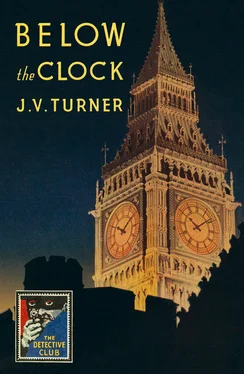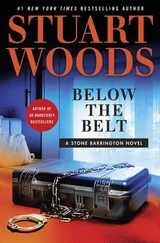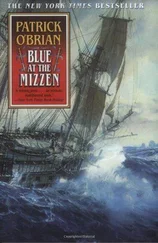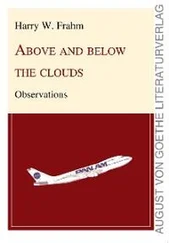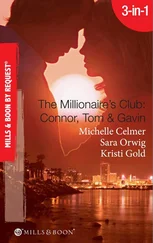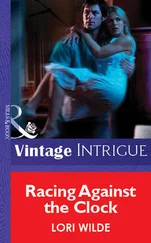‘But there’s nothing for us to be uncomfortable about.’
‘Quite. You’ve explained that. So there can’t be anything to get excited about. But for the love of crying out loud don’t get so pink round the gills each time her name is mentioned. If you act in front of other people as you have tonight everyone will swear that there’s something in it. I’m going back to the Temple to work.’
Watson was unwilling to leave things as they stood. He walked with his friend through the quiet streets at the back of Whitehall and along the Embankment. For some time both were silent. Then Watson spoke with startling abruptness:
‘Did you know that Edgar cut me out years ago with Lola?’
‘No, I didn’t. But after tonight, of course, I guessed it.’
‘I thought I had given you a false impression.’
Curtis took a cigarette from his case, handed one to Watson and lighted the two, glancing at the miserable face of his friend in the flickering light of the match. He spoke with a tone of smooth toleration:
‘Look here, old man, you’d better tell me nothing. You can’t prevent me putting two and two together. What does it matter if I think they make five? But you insist on talking, tell me what I am to believe.’
Watson winced and the cigarette glowed and glowed again.
‘I don’t want there to be an appearance of mystery where there is none. We were boy and girl together. When I came down from the university she floored me. I’d never thought of a woman before. Then Edgar came down for some shooting. After that I never had a chance. It was just as though he’d put a veil on her so that she could only look at him. I was nowhere. The trouble was that even now I fancy Edgar didn’t know he was cutting me out. He was infernally friendly.’
‘But afterwards? Was he never jealous?’
‘He had no cause. I saw her alone very little. Lola encircled her life with her wedding ring. Besides, I came to look on Edgar as a close friend.’
‘It was an impression he had a way of creating,’ said Curtis, dryly. ‘Take my advice, Watson, and tumble into bed. Your nerves are shaken. I’ll see you tomorrow. The troubles may have lifted by then.’
A few minutes before Watson and Curtis parted company a conference was in progress in the office of the Commissioner of Police. There were three men in the room. Sir Norris Wheeler, the Commissioner, was fifty, corpulent, bald-headed and irritable. Chief Detective Inspector Ripple was tall, cadaverous and melancholic. Amos Petrie, a solicitor from the Public Prosecutor’s Department, was an odd specimen. About five feet four in height, nearer fifty than forty, he had weak eyes that blinked behind rimless spectacles, large ungainly hands, had a nasty habit of staring over a person’s shoulder while talking to them and a worse habit of rubbing his hands on a huge coloured handkerchief every two or three minutes.
‘I asked you to come round, Petrie,’ said Sir Norris, ‘because we want some assistance. Ripple suggested to me that I should borrow you, and I think your services might be very helpful.’
Petrie glanced at Ripple with malevolence and coughed nervously.
‘I’ve got plenty of work to do without butting into Yard work,’ said the little man. ‘Why can’t you handle the case here?’
‘Because the inquiry is the most difficult we’ve ever had,’ said Ripple, ‘and we haven’t forgotten what you’ve done for us in other cases. I don’t think this is a job for an official Yard man.’
‘Why not? Thought you were paid to investigate sudden deaths.’
‘But you must know when such a death takes place in the House of Commons police work is hampered in a hundred and one ways. It looks as though every member of the Cabinet has got to be questioned and some M.P.’s have got to explain things. Add to that the fact that you can’t meet them in the House and you’ll see the start of the difficulty.’ The Commissioner was indignant.
Petrie played with his handkerchief.
‘I think you’re raising a mare’s nest,’ he remarked. ‘At the moment you don’t know what caused Reardon’s death. Why not wait?’
‘We know enough about the surrounding circumstances to realise that a few preliminary inquiries are justified,’ said Wheeler.
‘And what part am I supposed to play?’ asked the little man. ‘Do I sit on the doorstep of 10 Downing Street until I can chat to the members of the Cabinet? Or do I stand back and applaud while Ripple does his stuff?’
Sir Norris opened his mouth to snarl a retort. He hesitated, and changed his mind. Petrie was an odd man. For twenty years he had been known as a person who didn’t take kindly to discipline. His usual reply to a rebuke was simple and effective. He pointed out that since his private means were sufficient to sustain him, and since he preferred fishing to hanging around Whitehall it seemed that the time for a quiet removal had arrived. And Petrie was not the type of servant the Department wished to lose.
‘I can’t give you any details now,’ said the Commissioner. ‘Ripple can tell you all that there is to be known. You two have worked together many times. I only hope that you will be successful this time. May I take it that you commence to assist us tomorrow?’
Amos pursed his pale lips and played with a thin wisp of hair. The Inspector was gazing at him hopefully.
‘I’ll make a few inquiries in the morning,’ he said eventually, ‘and if I then consider that I can help Ripple I’ll lend a hand.’
‘That’s very good of you,’ said Sir Norris.
‘Actually, it isn’t. I don’t want to discover how or why Edgar Reardon passed from this world. But I’m glad of the chance to aggravate Ripple somewhat. I’m sure he’ll be glad to know that.’
The Inspector sighed heavily. His faith in the powers of Petrie were tremendous; after working with the small man many times he had developed a measure of respect for him. But their association meant the consumption of more beer than Ripple appreciated and the narration of many stories and much advice concerning the art of angling. Amos rose from the chair, looked at his uncreased trousers, picked up a bowler hat that hadn’t been dusted for years, pushed a tie that looked like a length of rope a little farther away from his collar, nodded his head to Wheeler, winked at Ripple, and ambled out of the room with the soft tread of an angler and the rolling gait of a sailor. The Inspector hurried after him. Petrie turned to view him disconsolately.
‘Sunshine,’ he said, wagging a head that was a couple of sizes too large for his thin neck, ‘I’m not congratulating you on dragging me into this lot. In other words, damn you! What about some beer?’
‘Not yet, not yet. Come into my office and I’ll tell you how things stand at the moment. After that we may have a drink.’
‘May have?’ Petrie sounded aghast. ‘I must have misheard you. If I can’t have an ale when I want one I’m resigning from this job now.’
‘I won’t keep you more than ten minutes. Then I’ll drink with you.’
‘The very soul of consideration, laddie. Lead the way, Sunshine.’
‘And don’t keep calling me Sunshine!’
‘Rather too masculine, you think? I’ll try Rainbow if it suits you better. Or shall we call you Epidemic? The words seem to fit.’
Ripple said nothing until they were seated in his office.
‘Did I tell you,’ commenced Amos, ‘about that chub I collected just before the start of the—’
‘Forget it,’ said Ripple wearily. ‘Let’s talk about the late Edgar Reardon. Tell me what you know about the affair and that I needn’t pass on old information.’
‘I don’t know much. He was thirty-nine. Graduated into politics after the usual education and a stay of a couple of years in Paris. Tried his hand as a barrister, but had no enthusiasm for it. Turned from the Bar to the City, and built up a name and collected a fair amount of money, as financial adviser to a few trust companies. Married Lola Andrews, only child of Sir Clement Andrews. Elbowed his way into the Cabinet because the other men in the party weren’t much good. Slick talker, affected dresser, unusually conceited, fond of company, posed as a friend to everyone, fancied himself as a coming Premier, did a bit of hunting and shooting, played cards a lot and settled down to a life of eminent respectability after he became Chancellor. Rose this afternoon to explain in his Budget how he intended to overcome a serious deficit, collapsed and died during his speech before he indicated the new financial programme. Cause of death at present unknown, but previously regarded as a man in good health. That’s all.’
Читать дальше
